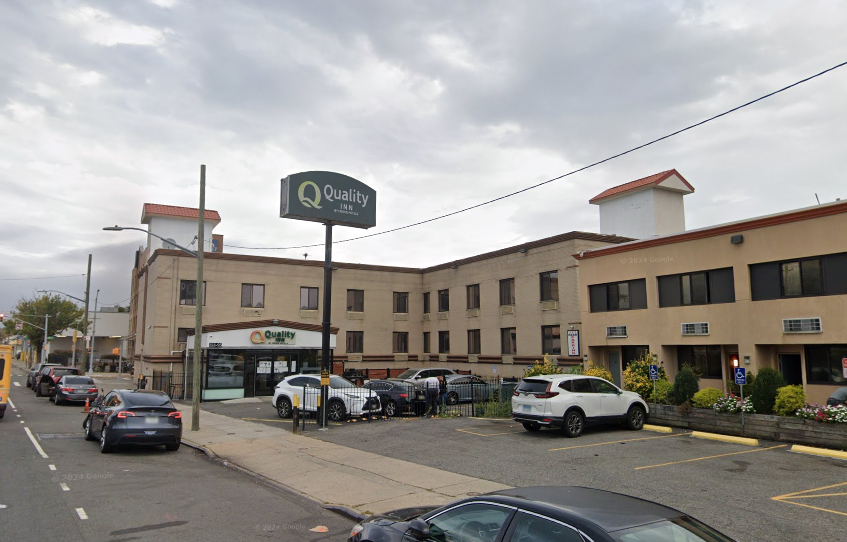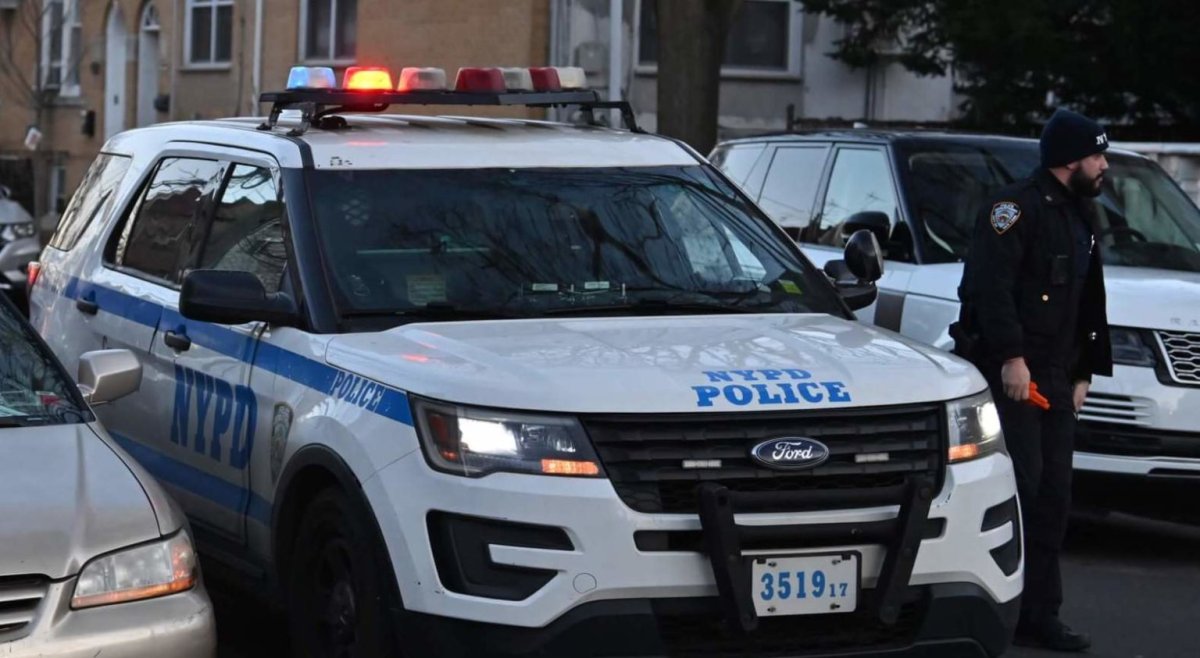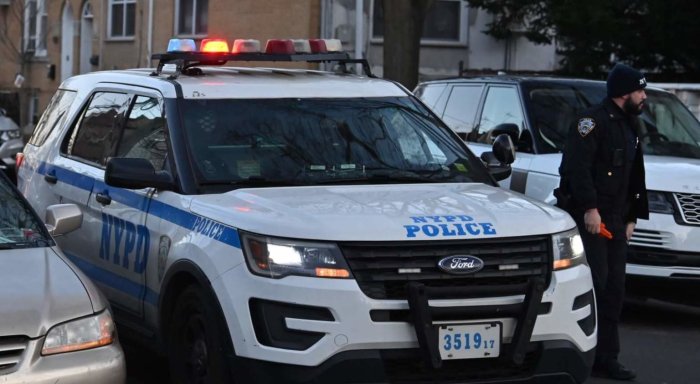By Ed Gold
Four Democratic candidates running for public advocate promised to hold the next mayor’s feet to the fire, with several focusing their ire on Mayor Mike Bloomberg.
They appeared at the second candidates forum sponsored by Village Independent Democrats at St. Mark’s Church in the Bowery last Thursday evening.
Those attending also heard candidates running in the Democratic primary for mayor, a candidate for comptroller who missed the first forum and the incumbent Manhattan borough president, who appears to be unopposed.
Mark Green, who has previously held the public advocate seat, expressed enthusiasm for running again “for the office I love.”
He promised to be “a watchdog, if not a bulldog,” in keeping tabs on the next mayor’s behavior.
Green, currently president of the liberal radio station Air America, invoked his earlier experience in the job, and promised to “blow the whistle” whenever it was appropriate.
He claimed responsibility for introducing the 311 phone operation, said he would oppose gas drilling Upstate that could endanger New York City’s watershed, and wanted real estate givebacks to the community in new housing construction.
Green added that all his opponents were good candidates, and that Bloomberg wasn’t as bad as Rudy Giuliani.
Norman Siegel, the civil rights lawyer, who ran for the office four years ago and lost, was vigorous in asserting that public advocate was the only elected position he was interested in.
“I want to be the people’s advocate,” he stressed, “going into communities, looking for local issues and shaking up the status quo.”
He said he would look for “social justice advocates at the local level, seeing the public advocate as representing the people against the government.”
Siegel was sharply critical of the Metropolitan Transportation Authority, suggesting the M.T.A. board was not representative of the people who ride the subways, and adding that the M.T.A. board should be elected rather than appointed.
Siegel also noted his opposition to Bloomberg’s coup in the City Council on the third-term issue.
The other candidates for public advocate were both from the City Council: Bill de Blasio of Brooklyn and Eric Gioia of Queens.
De Blasio quickly went after Bloomberg, arguing that the mayor’s run for a third term despite two public referenda in favor of the two-term limit was a threat to democratic government.
He also rapped the city government for seeking budget cuts that “hurt people in most need,” particularly calling the mayor’s attempt to “consolidate” senior centers “ludicrous.”
De Blasio advocated greater community activity in supporting the needs of localities, adding that the city should regain its reputation as “the progressive capital of the nation.”
Gioia pointed to his early work experience in menial jobs and argued that “government must promise you a fair shot at a good life.”
Gioia noted that a million people in the city who qualified for food stamps were not currently getting them; he said he would inform needy people of their rights and fight to cut city red tape.
On education and transportation, Gioia called for conspicuous changes. Students, he said, should begin schooling at 3 years old, and the schools should be open till 5 p.m. The M.T.A., he added, was an example of “broken government,” notably ignoring environmental considerations.
V.I.D.’ers also heard two candidates running for mayor, Comptroller William Thompson and Queens Councilmember Tony Avella. Representative Anthony Weiner of Brooklyn, who has hedged about running, did not appear.
Calling Bloomberg “a Wall Street man,” Thompson argued he could win against “Bloomberg’s $100 million” by rallying public opinion.
“Bloomberg says we can’t live without him,” Thompson said. “The fact is, we can’t afford to re-elect him.” He listed some of his grievances: There were too many sweetheart deals for developers, while residents were less protected; $130 million was allocated for testing, which is at the heart of Bloomberg’s educational program; the administration spent $300 million on no-bid contracts; the mayor’s recommendation to close senior centers was reprehensible; and the mayor ignored the public’s position on term limits.
Thompson said he agreed the mayor should control schools, but that “parents had been shut out of the process,” and he felt that there was much too much concentration on standardized testing.
The most radical candidate of the evening was mayoral candidate Avella, a long shot who called for “fundamental revolutionary change.”
His revolution would include telling “the real estate industry that its control of the city is over.” He argued that government should work from the bottom up, and that neighborhoods should be able to control their own development.
Trying to get reform under Bloomberg, Avella added, was like “hitting your head against a brick wall.” He struck hard on the education issue, saying the first thing he would do was “fire Joel Klein,” the schools chancellor, “and tell him not to hurt his head on the way out.”
Among other points, Avella claimed the Department of Buildings was corrupt; New York City should be the national art center; and we should be fearful of losing our civil liberties.
An entry in the comptroller race, John Liu of Queens, had shown up too late for the first forum, so he was allowed to make a delayed presentation. He claimed a deep knowledge of the city’s finances, and promised to be both an “independent watchdog,” as well as a “pit bull,” in “working for the people.”
Liu criticized “deals on the City Council that permitted Bloomberg to run for a third term.” He also took issue with the use of tobacco money received by the city, which should have gone for treatment and educating people about the dangers of smoking, but instead went into the city’s general fund. Liu called for stronger environmental controls in city contracts.
Discussing his early employment, Liu noted he had worked in a sweatshop when he was 7, and didn’t know he was violating the law, a confession the audience greeted with laughter.
Rounding out the candidates was Scott Stringer, running for re-election as Manhattan borough president, although he is also thinking of running for the U.S. Senate next year.
Having won against a huge field of candidates four years ago, Stringer joked that “it would be easier this time.”
He argued that he had depoliticized community boards, making them independent. He discussed his “Go Green” campaign, which he said has resulted in an “urban agricultural agenda.” Stringer hinted that mayoral control of education had dictatorial aspects, and called for greater parental participation. Like many of the other candidates, the borough president decried the mayor’s attempt to close senior centers.
V.I.D. stuck to its format that had worked well at the first forum in controlling the clock: Each candidate had three minutes to speak, followed by a five-minute question-and-answer period. This time there was a problem since several candidates came very late. That resulted in a great deal of open time and required both district leaders, Keen Berger and Brad Holyman, and State Committeewoman Rachel Lavine, among others, to keep the forum going while awaiting candidates. Hoylman and Lavine cheered up the audience by reporting Governor David Paterson’s commitment to same-sex marriage legislation, an important issue for V.I.D.
The club’s forum team included Jonathan Geballe as host, Berger and Tim McNerny as questioners, and Lorna Gottesman as timekeeper. A tray of cookies, which came in handy during the periodic lulls, was contributed by Celia Wu and Berger.

































